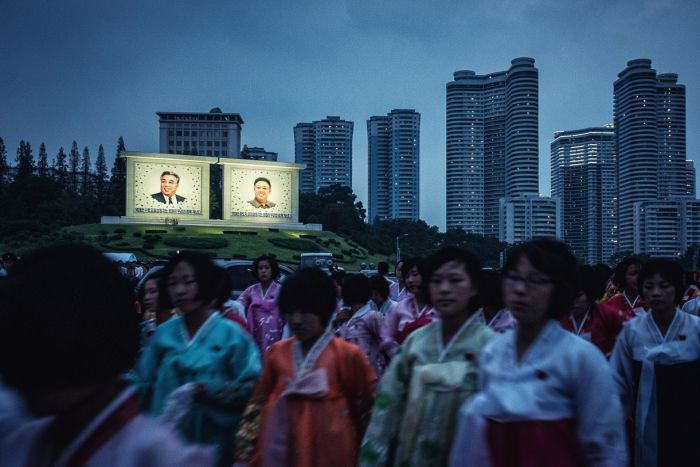In 2014, the Asan Institute for Policy Studies asked South Koreans what words they would use they would associate with North Korea. The results (shown above) depict a population in South Korea that does not use the word “family” or “one nation” in their descriptions of their neighbors to the North. And why would they?
The once united Koreas are yin and yang today. One is rich. The other is poor. One is a democracy. The other is a totalitarian dictatorship. To reunite, many experts say that it will cost South Korea an estimated $2 trillion and disrupt the surging economy of South Korea.
South Korea’s president, Park, Geun-hye has made reunification a key component of her presidency. Some experts say that it’s the country’s last-ditch effort as interest in her country wanes.
In light of the decreased interest of the South Korean people to reunify, Senior Research Scholar at Columbia University, Sue Mi Terry spelled out three likely scenarios for reunification in Foreign Affairs magazine.
The first is what she describes as the “soft landing” in which North Korea improves their economy, engages with South Korea and willfully dissolves under democratic rule. The second involves an implosion of North Korea under economic pressures, in which case South Korea assumes control of the peninsula. The third is a military conflict in which the South and its allies gain control of the North by force.
The most likely, according to Terry, is the second scenario. North Korea implodes due to economic failure or political in-fighting and is absorbed into South Korea.
However, an implosion would send North Korean refugees into China and South Korea, creating an unparalleled humanitarian crisis. Such a scenario, though possible, is unlikely in the status quo as China, North Korea’s largest benefactor, will not allow this to happen for many reasons we discussed in an earlier post.
China sees North Korea as a key, strategic partner for many reasons, namely, to keep the US army far from its borders.
North Korea, on the other hand, has embraced isolationism. Its “rogue state” status has left the dictatorship no choice but to hold onto power in their failed state. They are keen to the fact that any scenario in which the regime topples would mean trials in international courts and possibly execution at the hands of its own citizenry.
The US and its allies have little time to devote to a meaningful solution to the problem of North Korea with wars in the Middle East and its dependence on Chinese imports. Reunification, to world leaders, will likely be an expensive if not bloody process and one which would require too much political will.
But this is, to many, is a short-sighted view. If there is no North Korean dictatorship, the largest destabilizing force in East Asia would be eliminated. 25 million North Korean people would be free from their imprisonment and add South Korea’s dwindling workforce. South Korea would eventually prosper with access to the rich mineral wealth North Korea cannot afford to extract on its own.
Reunification will likely mean that the 200,000 North Korean refugees caught in limbo in China can return home and will not have to live in fear of forced repatriation for the “crime” of their escape.
It sounds almost too good to be true. There are many variables in this process that can harm North Korean refugees. A simple misstep by either of the Koreas, China or the US can cause irreparable damage for this population and the millions of people living on or near the peninsula.
It is a risky and expensive proposition, which politicians do not like. But the alternative is, arguably, even riskier. North Koreans are still hungry. There are tens of thousands in political prison camps. They have no freedom. And they are at the whim of the few at the top who live in opulence and care little about those they oppress.
The real risk isn’t in doing something to free these people, it’s if the world, with all its riches and bounty, does nothing.
We are not saying reunification is the ultimate answer but, in light of the suffering, we believe that something needs to be done.




















